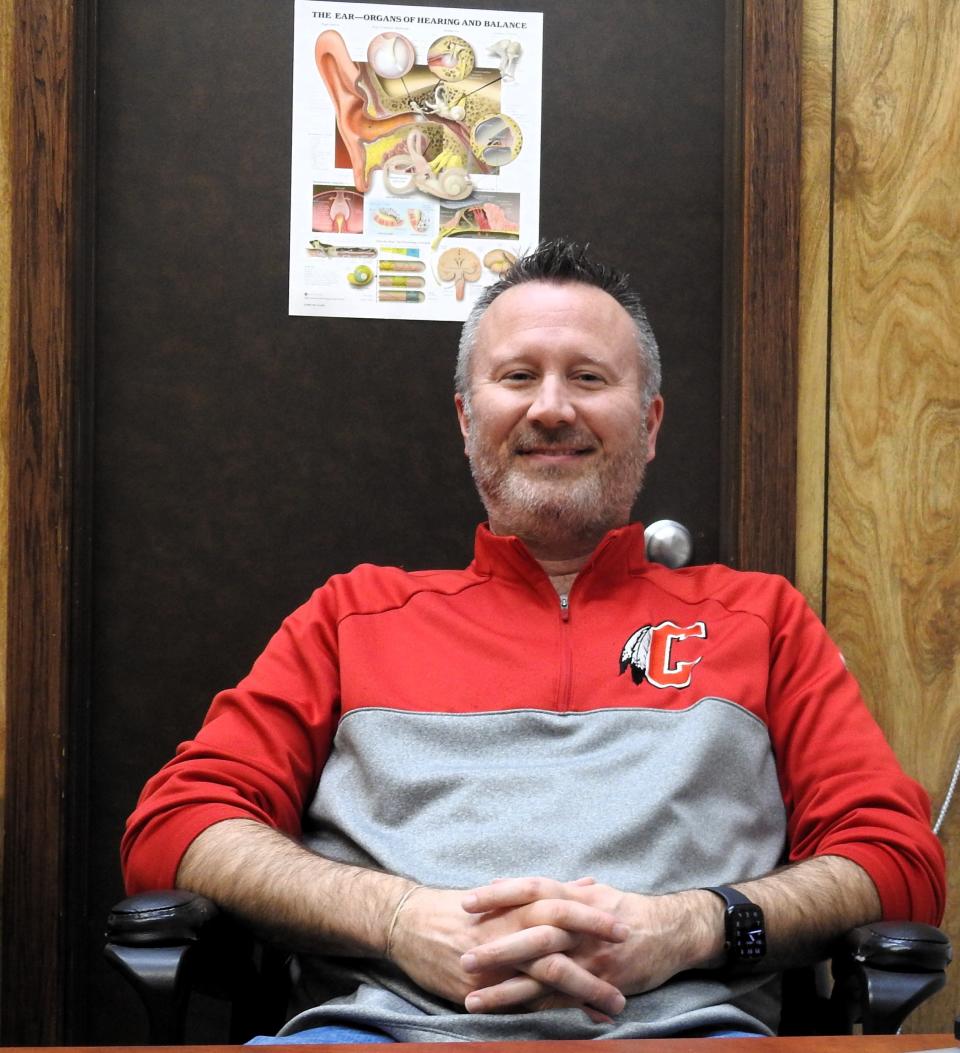Senior citizens are not the only individuals effected by hearing loss
COSHOCTON − Aaron Garabrandt wants to dispel myths that hearing issues only affect senior citizens. Younger people can have hearing problems as well.
Garabrandt is board certified in hearing instrument sciences and works as a hearing care practitioner on Fridays at the Beltone Hearing Care Center of Coshocton in the Downtowner Plaza. He works Monday to Wednesday for Beltone in Chillicothe and Thursdays in Zanesville.

Common hearing problems
Garabrandt said the most common complaint is not being able to hear in noisy situations. Excessive noise is the top reason for hearing loss, not getting older as many people believe. Hearing tests are performed on patients to determine if there is any hearing loss and how much.
Garabrandt sees a mixed demographic, but younger patients are generally farmers or factory workers.
"Typically with hearing loss, we don't know we're losing our hearing because it's a pretty gradual decline. It's just years and years overtime, it gets a little bit worst," Garabrandt said. "Noise is the leading cause of hearing loss. A lot of people thinks it's age, but age is actually second."
Garabrandt remembers a middle-aged patient who had been around loud noises since he was a kid and didn't take proper precautions, such as wearing ear plugs. Even with hearing aids, his hearing continued to decline and he eventually needed a cochlear implant.
"Sometimes hearing aids aren't the best option and we determine that throughout the testing process. Some people might be too far gone and hearing aids don't work. That's when we look at other options," Garabrandt said.
He said hearing loss can be linked to cognitive decline and dementia. As one loses their hearing, speech recognition goes with it. It can also affect balance, leading to a fall risk.
"The worse our hearing gets, the less speech we understand," he said. "A lot of people think it's just about our hearing. Yes, we want to help with hearing and we hear with our ears, but we understand, interpret and process everything with our brains. When our brain is neglected of certain speech sounds, it more or less forgets how to process those sounds. The worse it gets the more difficult it gets for us to help."
Advances in technology
Garabrandt said as technology advances in all aspects of our society, hearing aids are no different. He said years ago many people didn't wear hearing aids because they were bulky and noticeable and it carried a stigma. Today, most hearing aids are small and barely noticeable.
Bluetooth technology has also come to hearing aids, meaning people can connect to their phones to better hear voices and music. There are also phone apps that allows you to adjust the volume, dial down background noise and in general adjust your equipment.
He said the day will soon come where people can link into public address systems at airports, concert halls and sports venues, as well as the audio of a friend's phone. It's called Auracast Broadcast Audio. New hearing aids have the capabilities and will be able to take advantage of the technology once it becomes more widespread.
While hearing aids are getting smaller and smaller, they are doing more better, Garabrandt noted.
"They've put a lot of time, effort and money into the development and research. It's how can we make people hear better, specifically with noise, but really across the board," he said. "The reality is with the technology getting better and hearing aids getting smaller...younger folks who still have a concern of vanity, that's a big deal. They want to get the help, but they don't want to be walking around with people seeing it. They're a lot more discrete."
Leonard Hayhurst is a community content coordinator and general news reporter for the Coshocton Tribune with more than 15 years of local journalism experience and multiple awards from the Ohio Associated Press. He can be reached at 740-295-3417 or llhayhur@coshoctontribune.com. Follow him on X (formerly Twitter) at @llhayhurst.
This article originally appeared on Coshocton Tribune: Hearing loss isn't just a problem for senior citizens

